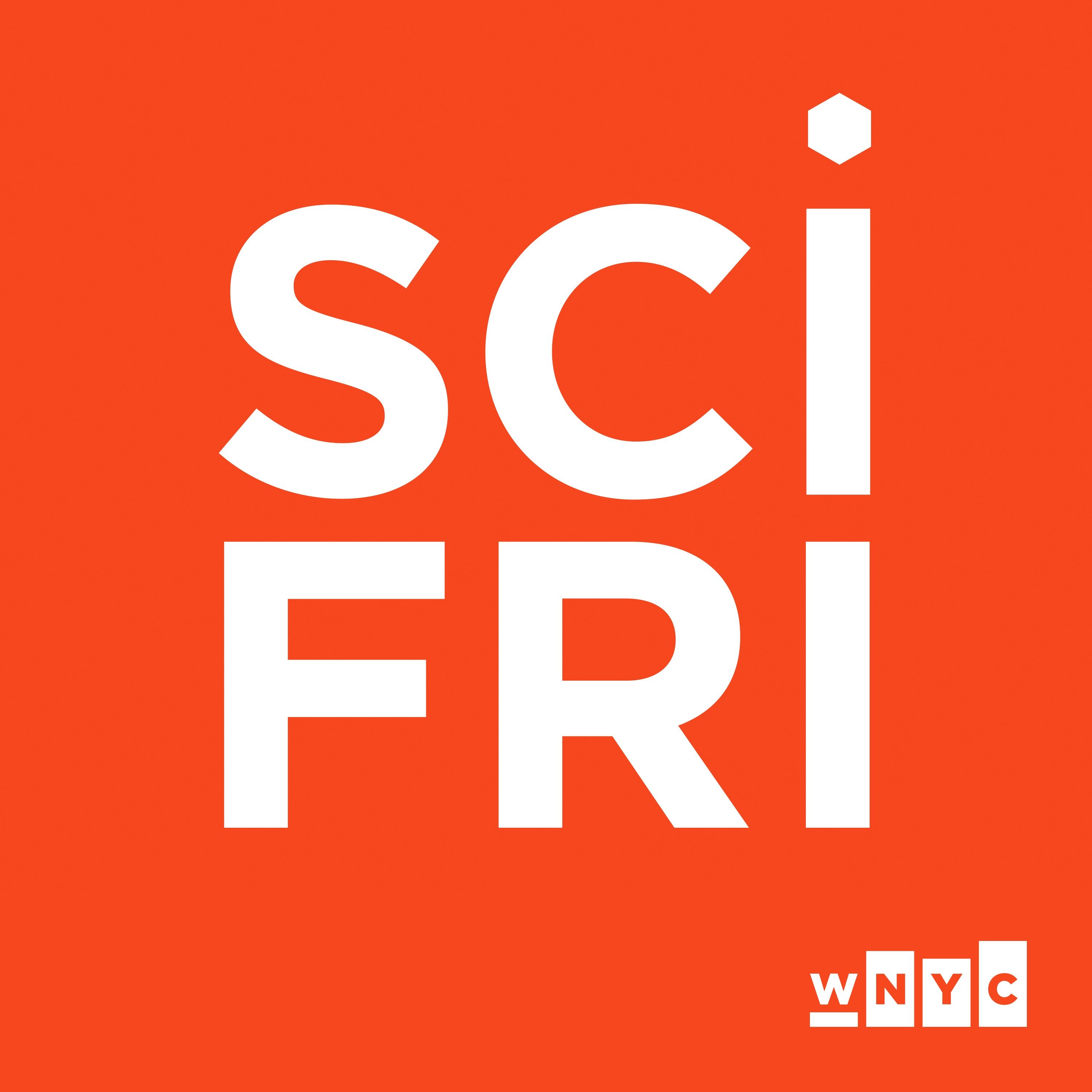

Science Friday
Science Friday and WNYC Studios
Covering the outer reaches of space to the tiniest microbes in our bodies, Science Friday is the source for entertaining and educational stories about science, technology, and other cool stuff.
Episodes
Mentioned books

20 snips
Oct 15, 2025 • 19min
The Science Of Replacing Body Parts, From Hair To Hearts
In this engaging discussion, science writer Mary Roach, author of Replaceable You: Adventures in Human Anatomy, delves into the fascinating world of body part replacement. She shares her self-experimentation with hair transplants and raises thought-provoking questions about cultural biases toward limb amputation. Roach also highlights surprising medical advancements, like using colon for vaginoplasty and the complexities of 3D-printed organs. Through her insights, she explores the challenges of replicating our complex anatomy and the ongoing importance of human donors.

8 snips
Oct 14, 2025 • 19min
It’s Not Just You—Bad Food Habits Are Hard To Shake
Dr. Kevin Hall, a nutrition scientist and former NIH researcher, explores the complex relationship between weight loss and metabolism, drawing from his experience studying contestants on The Biggest Loser. He reveals surprising findings about metabolic slowdown despite intensive exercise and the challenges of maintaining weight long-term. Julia Belluz, a science journalist and co-author of Food Intelligence, discusses how modern ultra-processed foods disrupt our innate appetite signals. Together, they tackle nutrition myths and suggest ways to improve our food environment.

Oct 13, 2025 • 19min
100 Years Later, Quantum Science Is Still Weird
Dr. Chad Orzel, a physics professor and quantum science expert, delves into 100 years of quantum theory. He highlights Heisenberg's pivotal contributions and explores quantum entanglement, discussing its real-world implications and experimental validations. Orzel addresses the perplexing concept of wave-particle duality and shares insights on modern experiments, even touching upon Schrödinger's cat. He also speculates on future breakthroughs that may unlock the mysteries of dark matter and energy, all while emphasizing how quantum science remains intriguingly bizarre.

7 snips
Oct 11, 2025 • 19min
An Off-The-Grid Nobel Win, And Antibiotics In Ancient Microbes
Dr. Fred Ramsdell, a Nobel Prize winner for his groundbreaking work on regulatory T cells, shares the surprising way he learned about his win while off-the-grid. He delves into the therapeutic potentials of these cells in treating autoimmune diseases. Dr. César de la Fuente, a bioengineering professor, discusses his innovative approach using AI to discover new antibiotics from ancient archaea. With a staggering success rate against bacteria, his research aims to combat the growing issue of antibiotic resistance.

Oct 10, 2025 • 25min
World Space Week And Promising Climate Tech Companies
Astrophysicist Hakeem Oluseyi shares insights on groundbreaking space missions like IMAP and the mysteries of dark matter and energy, while reflecting on profound cosmic questions. Casey Crownhart, a senior climate reporter, discusses promising climate tech trends, including sodium-ion batteries and recycling methods for rare earth magnets. The conversation unveils exciting developments in global renewable technologies and highlights China's leadership in clean energy initiatives. Together, they explore how advancements in both fields could reshape our future.

Oct 9, 2025 • 20min
The Story Behind The Largest Dam Removal In U.S. History
Amy Bowers Cordalis, an attorney and member of the Yurok Nation, joins Barry McCovey Jr., director of the Yurok Tribes Fisheries Department. They discuss the 2002 salmon die-off that inspired action to remove the Klamath River dams. This monumental effort restored a vital salmon habitat and revitalized the river's ecosystem. Listeners will hear about the dam's impact on native salmon populations and the economic advantages of removal. The renewed vibrancy of the river and ongoing monitoring highlight nature's incredible capacity to heal.

Oct 8, 2025 • 18min
How Archaeologists Try To Smell, Hear, And Taste The Past
Sam Kean, a science writer and author of Dinner with King Tut, dives into the fascinating world of experimental archaeology. He shares his wild adventures in recreating ancient life—from brain tanning and DIY mummification to crafting 75,000-year-old bedding. Sam humorously recounts his urine-tanning mishap and the cleverness behind ancient practices like Roman concrete and authentic Egyptian sourdough baking. Through hands-on experiences, he unveils the creativity and resilience of our ancestors, reshaping traditional views of archaeology.

Oct 7, 2025 • 18min
Moth Survival Strategies And A Rodent Thumbnail Mystery
Dr. Iliana Medina Guzman, a Senior Lecturer at the University of Melbourne, shares insights from her fascinating study on moth survival strategies, involving 15,000 origami moths in diverse environments. She explains how camouflage versus warning coloration's effectiveness varies based on predator competition and environmental factors. Later, mammologist Dr. Anderson Feijó and evolutionary biologist Dr. Rafaela Missagia discuss the evolutionary significance of rodent thumbnails, revealing how they enhance dexterity and food handling, challenging previous perceptions of their importance.

Oct 6, 2025 • 12min
As The CDC Falters, How Do We Fill Public Health Gaps?
Dr. Tom Frieden, former CDC director and president of Resolve to Save Lives, dives into the current turmoil of the public health system in the U.S. He discusses the pressing need for local agencies to step up amid CDC challenges. Tom highlights innovative efforts addressing issues like PFAS, exposes the gap between federal rhetoric and rollbacks in health programs, and emphasizes the importance of rebuilding trust post-COVID. He also encourages community support for local health departments and underscores the crucial balance between scientific certainty and public action.

14 snips
Oct 3, 2025 • 13min
Anthropologists Have A Bone To Pick With New Skull Finding
Dr. John Hawks, an esteemed anthropologist at the University of Wisconsin-Madison, delves into a controversial new analysis of an ancient skull from China that threatens to rewrite the human evolutionary timeline. He discusses how the skull's features suggest an earlier emergence of Homo sapiens and our relatives. Skepticism reigns in the field, prompting John to stress the importance of fossils and DNA in shaping our understanding of human ancestry. The conversation unfolds around the implications of this finding for our perception of human diversity and adaptation.


